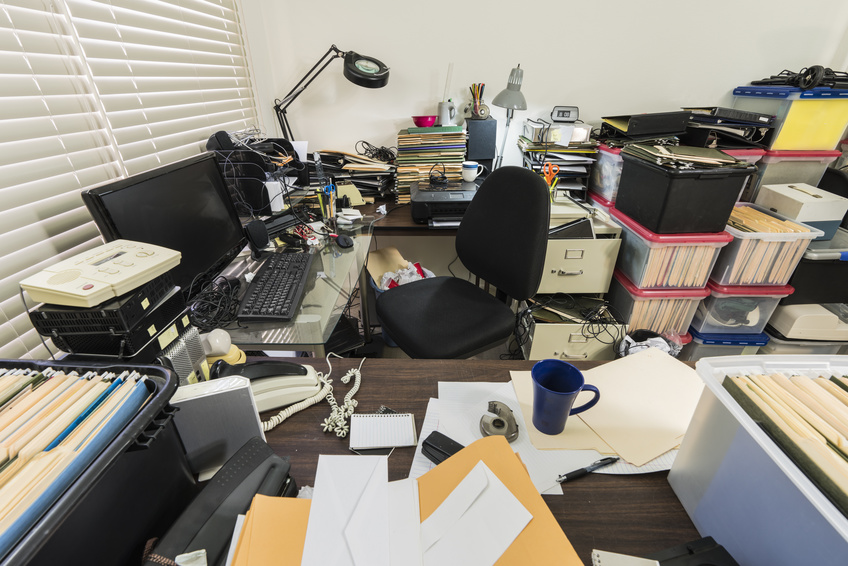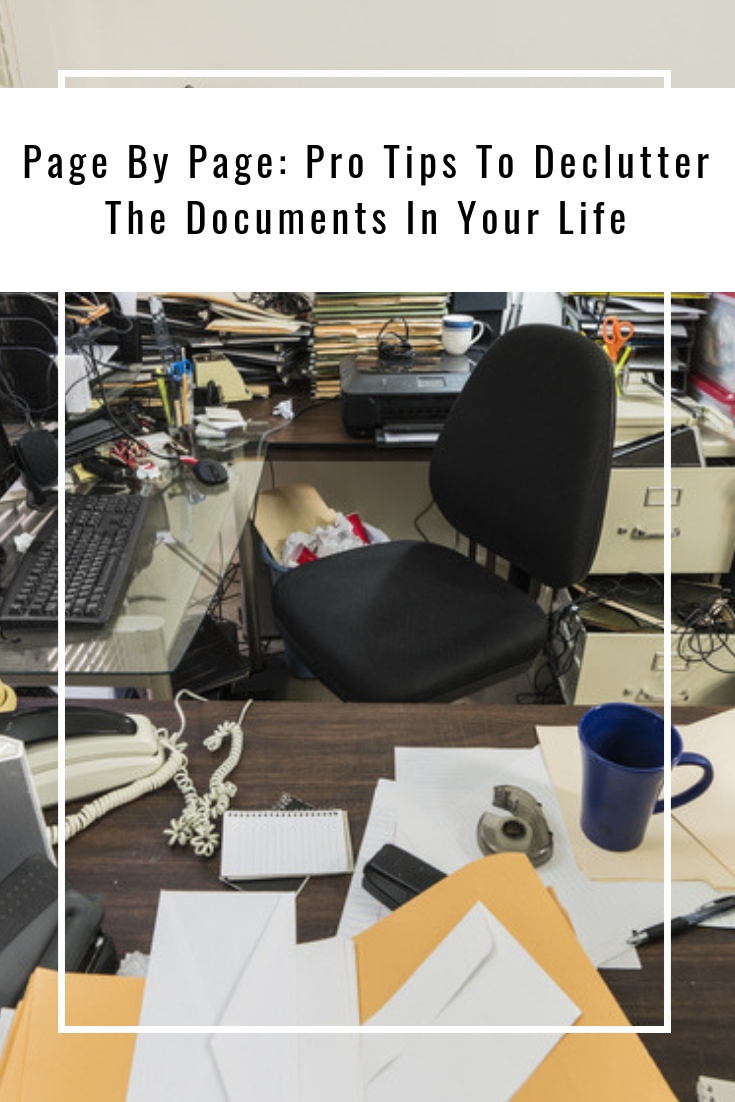Pro Tips To Declutter The Documents In Your Life

With the popularization of decluttering strategies like the KonMari method, this spring has seen people diving into their organizational endeavors like never before. While cleaning out your closet and contributing to the 2 million tons of used clothing Americans recycle every year may be a simple enough task, the sorting spree often comes to a halt when it’s time to organize papers.
From mail to bills to the little scraps you thought would be important at some point, the paper in your home can quickly become overwhelming. And you probably don’t feel joy when you look at any photocopied form or old credit card statement, so you can’t use that as a deciding factor like you can with old clothing. Luckily, there are plenty of other ways to effectively declutter the paper in your home.
Switch to paperless billing
Any decluttering efforts you make won’t be very effective if paper keeps coming into your home. One of the best ways to prevent this is by switching any bills or statements you get in the mail to online communication. Most major utility companies and banks offer paperless options for receiving bills and paying them.
Not only will going paperless keep clutter out of your space but 15% of all paper documents are misplaced, and 7.5% are lost completely, according to the Gartner Group. By keeping it all digital, you won’t lose track of an important statement ever again.
Find your storage system
Everyone has a preferred way of organizing their personal belongings, including paper. Finding your own method will go a long way in making the paper in your home feel less overwhelming. Start by picking one location to store all of your papers. Whether this is a shelf in your home office or a file box in the corner of your kitchen, having a centralized location for your documents will keep them from scattering around your home.
You will also need a way to continually sort any papers that require your attention as they through your door. Many people find sorting success by having an action station. Put any documents that need action — such as RSVP cards, forms you need to complete, and letters you need to send — in one dedicated spot. Then, set aside a regular time each week to complete these actions and clear the space.
Get to shredding
One of the biggest reasons why people procrastinate sorting paper is that they don’t know what to do with the documents that have personal information printed on them. Some people end up just throwing these papers into the garbage to rid themselves of the clutter. However, this leaves them vulnerable to identity frauds that can compromise their personal and financial safety.
The best way to protect your private information is to shred any documents that contain this data. Investing in an office shredder is worthwhile for this purpose, or you can use shredding services to avoid paying for your own shredder. No matter the method you choose, these initiatives will set you apart from the 30% of consumers who neglect to shred documents containing sensitive information before throwing them out.
Recycle magazines and newspapers
Magazines, newspapers, and other promotional flyers are some of the most notable culprits of clutter. As soon as a company gets a hold of your physical address, they’ll start sending you a seemingly unending stream of advertisements and flyers. This is because people are typically more engaged with printed material over digital, which viewers will often skim in just 15 seconds. However, this effective marketing tactic isn’t so great for your storage sanity.
Get rid of this material before it even makes it on to your countertops by placing a recycling bag or bin near your front door. As soon as you bring the mail inside, put any magazines or flyers you know you won’t use into this bin. Placing the bin next to your front door also makes bringing the papers to your outdoor recycling receptacle even easier.

You don’t have to suffer under a mountain of useless papers. Set aside a day (or two) to tackle this clutter and implement an effective organization system. Remember to keep up with the system, and you’ll soon see how manageable paper can really be.
Really declutter is big headache )
But thanks for the ideas